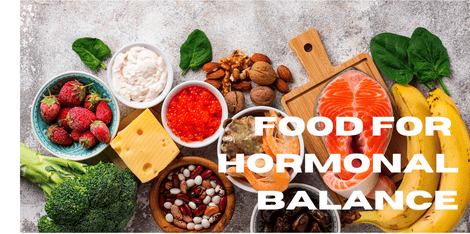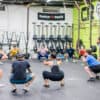Struggling with your estrogen?
Estrogen is a hormone that plays a crucial role in various physiological processes in the body, including reproductive health and bone density. It’s also thought to have a positive impact on cardiovascular health.
Estrogen levels naturally decline as you age (and after menopause), which may contribute to symptoms like hot flashes or night sweats.
There are a number of things that can cause low estrogen levels, including:
- Age. As you get older, your body produces less estrogen. This is normal and expected as you approach menopause and beyond.
- Menopause. When you’re in menopause, your ovaries stop producing eggs and making the hormones progesterone and estrogen–the same thing that happens when you go through puberty (the process by which your body goes from being a child’s to an adult’s). This change typically happens around age 50 but varies from person to person; some women get theirs earlier than others!
- Certain medications like birth control pills or hormone replacement therapy (HRT). These drugs contain synthetic versions of natural estrogens that can affect how much real estrogen gets into your system when taken regularly over time; they may also cause side effects like headaches or weight gain if taken incorrectly/overly often/without proper medical supervision.
Foods Rich in Phytoestrogens
Phytoestrogens are plant compounds that mimic the effects of estrogen in the body. They’re found in a variety of foods, including flaxseeds and chickpeas. Lentils are another excellent source of phytoestrogens as well as whole grains like brown rice and quinoa.
Vitamins and Minerals for Estrogen Production
Vitamins B6, B12 and E are all needed for estrogen production. Zinc, magnesium and iron also help support the production of this hormone.
Healthy Fats for Estrogen Production
One of the main ways to boost estrogen production is by eating healthy fats. Healthy fats are a great source of energy and they also help support hormone production in the body. Omega-3 fatty acids, found in fish and nuts, as well as seeds like flaxseed or chia seeds can help support the production of estrogen.
You can also get your fill of healthy fats by incorporating more avocados into your diet (they’re packed full of monounsaturated fat) or eating more coconut oil for its medium chain triglycerides (MCTs). MCTs have been shown to increase metabolism and improve brain function; plus they’re easy on digestion since they don’t require bile salts for digestion!
Fiber for Estrogen Production
Fiber helps to support the production of estrogen by binding to estrogen in the gut and helping to eliminate it from the body. Fiber also helps you feel fuller longer, which means that you’re less likely to overeat.
A high-fiber diet has been shown to reduce risk factors for heart disease, diabetes and obesity. Studies have found that people who consume a lot of fiber tend to weigh less than those who don’t eat much fiber at all–and this may be because they’re absorbing fewer calories from their food!
Herbs and Spices for Estrogen Production
Herbs and spices can help support the production of estrogen. The following herbs and spices are good for this:
- Turmeric
- Ginger
- Cumin (a spice used in Indian cuisine)
- Fennel seeds, which have been shown to increase blood flow to the uterus and ovaries by as much as 50%
- Anise seed, which has been shown to increase progesterone levels by almost 50%.
Tips for Eating to Boost Estrogen Levels
The following tips can help you boost your estrogen levels naturally through nutrition:
- Eat a balanced diet. A well-balanced diet is essential for maintaining good health, and it’s especially important if you want to increase your body’s estrogen levels. You can learn more about this inside my nutrition coaching programs.
- Eat plenty of fresh fruits and vegetables every day–at least five servings per day (about 1 cup each) would be ideal! These foods contain phytonutrients such as flavonoids, carotenoids (e.g., beta-carotene), lignans (found in flaxseed), isoflavones (found mostly in soybeans/tofu), vitamin C.
If you want tips on how to boost your estrogen, join one of my nutrition coaching programs today.
Brit Bailey, MSNHP, RDN, LDN






